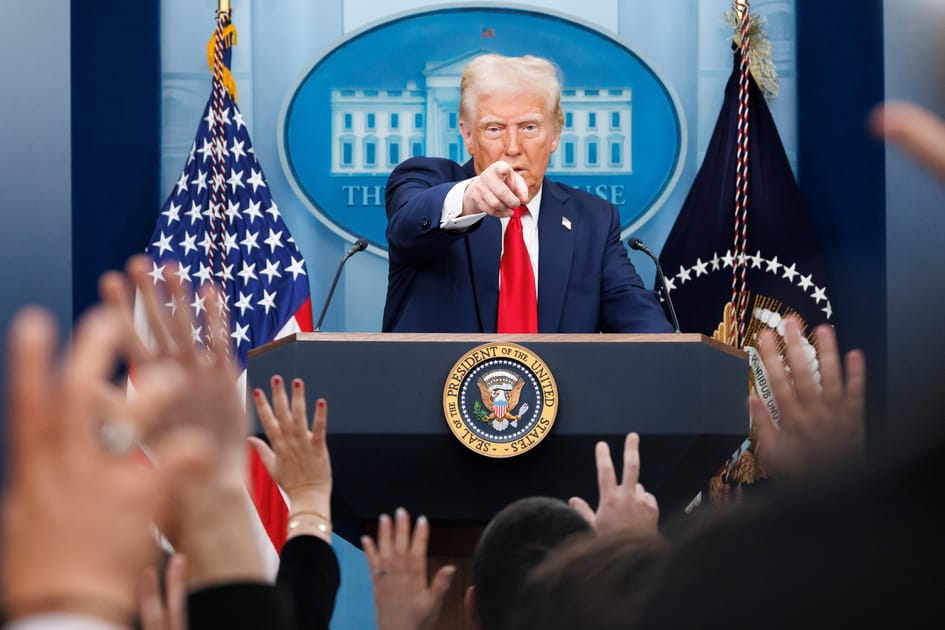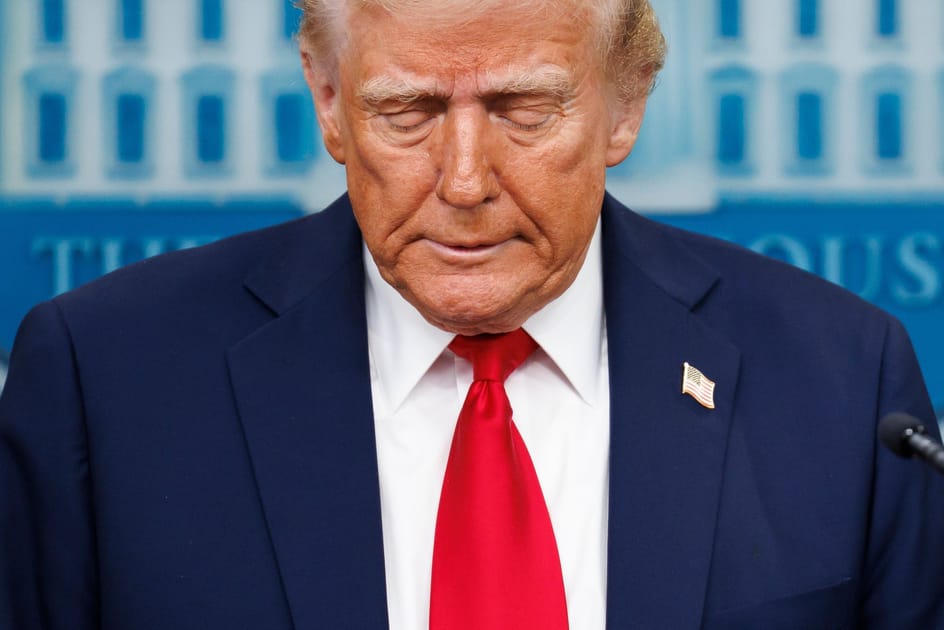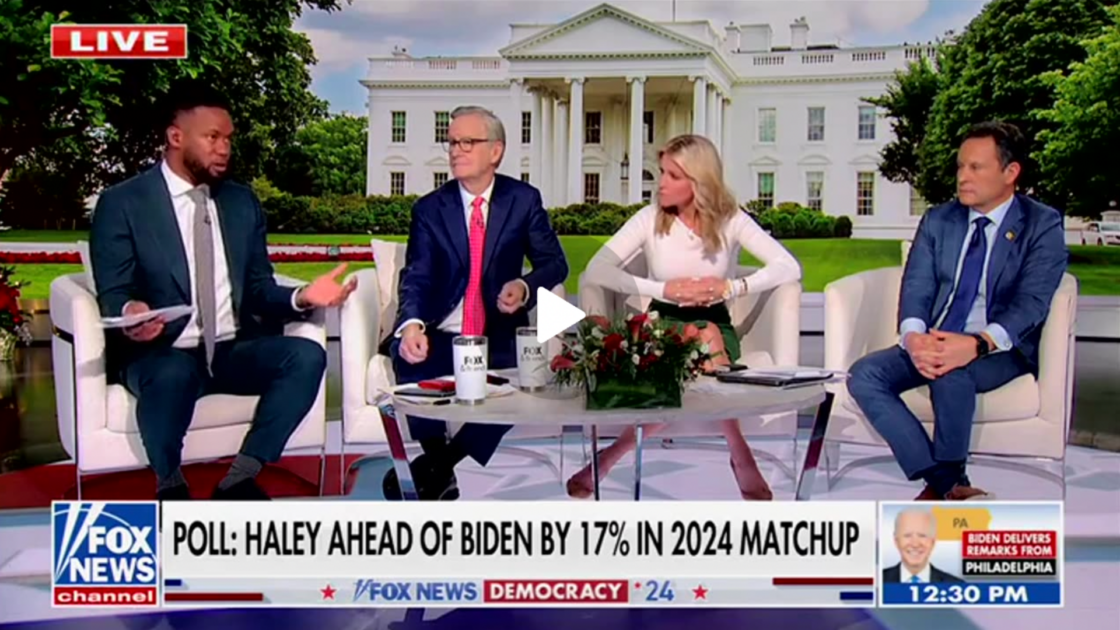President Donald Trump said that the head of the Chinese Communist Party (CCP), Xi Jinping, was conspiring against the United States with the leaders of Russia and North Korea as they gathered for a military parade in Beijing marking the anniversary of China’s defeat of the Japanese in World War II.
As the parade began on Wednesday local time, Trump asked in a post on Truth Social whether Xi would “mention the massive amount of support and ‘blood’ that The United States of America gave to China in order to help it to secure its FREEDOM from a very unfriendly foreign invader,” referring to Imperial Japan.
“Many Americans died in China’s quest for Victory and Glory,” he said. “I hope that they are rightfully Honored and Remembered for their Bravery and Sacrifice!”
Trump then went on to wish Xi and “the wonderful people of China … a great and lasting day of celebration.”
“Please give my warmest regards to Vladimir Putin, and Kim Jong Un, as you conspire against The United States of America,” Trump said.
Kremlin foreign policy aide Yuri Ushakov responded to the remark, telling Russian state television, “I would like to say that no one has been conspiring, no one has been plotting anything, no conspiracies.”
Ahead of the parade, the CCP stepped up security and restricted citizens’ movement.
The event marks the 80th anniversary of Japan’s surrender, which China observers note the Chinese Communist Party (CCP) uses to push a false narrative that it led the fighting against Japan rather than the Republic of China government, which at the time ruled China before retreating to Taiwan.
Taiwan’s Mainland Affairs Council criticized the CCP for spending more than $5 billion on the military exercise while “neglecting China’s economic, labor, and social issues.”
While both Taiwan and mainland China commemorate China’s victory over Japan on Sept. 3, the CCP parades its military while Taiwan, joining other U.S. ally nations, holds exhibits and concerts among other events in honor of the lives lost in the battle for freedom.
Taiwanese President Lai Ching-te criticized the CCP’s military parade in a social media post on Wednesday.
“The people of Taiwan cherish peace, and Taiwan does not commemorate peace with the barrel of a gun,” he wrote. “Rather, it remembers the lessons of history, sticks to the faith in freedom and democracy, and believes that the equipment in hand is used to defend the country, not to invade and expand.”
The parade marked the first time that the leaders of North Korea, Iran, Russia, and China had gathered at the same event. It was also the first time a North Korean leader had attended a Chinese military parade since 1959 during the Cold War.
Russian President Vladimir Putin and North Korean leader Kim Jong Un were Xi’s guests of honour. Xi has been supporting Putin’s invasion of Ukraine since they struck a “no-limits” partnership about 20 days before Russia’s offensive in February 2022.
In all, 26 foreign heads of state attended the event, including leaders from Central Asia (Kazakhstan, Uzbekistan, Tajikistan, Kyrgyzstan and Turkmenistan); Southeast Asia (Myanmar, Cambodia, Vietnam, Laos, Indonesia, Malaysia, Pakistan, Nepal and the Maldives); West Asia (Azerbaijan, Armenia and Iran); Europe (Belarus and Serbia); Africa (the Republic of the Congo and Zimbabwe); and Cuba.
Venezuelan leader Nicolás Maduro was missing amid heightened U.S. naval activity in the Caribbean that Trump said was targeting Venezuela’s Tren de Aragua gang members.
This turnout was less than the number of heads of state that attended Xi’s 70th anniversary parade in 2015, which included some Western and former international leaders, including Indian Prime Minister Narendra Modi.
Modi did, however, attend the Shanghai Cooperation Organization (SCO) in China’s Tianjin days earlier, posting photos to his social media of his meetings with Xi and Putin.
Modi is under pressure at home after Trump slapped India with a steep 50 percent tariff on its goods exported to the United States, just 5 percent less than the highest tariff rate put on Chinese goods.
The SCO, led by Beijing and Moscow, is aimed at countering perceived Western influence in Central Asia. After Xi and Putin’s bilateral meeting at the summit on Sept. 2, Moscow’s energy giant Gazprom announced a new agreement to build a major natural gas pipeline linking the two neighbors who have a complicated history.
In May, a mid-level official from China’s Ministry of Foreign Affairs defected to Russia with a cache of classified documents that outlined contingency plans drafted by Beijing in the event of a Russian defeat in Ukraine, revealing a lack of confidence in the stability of Putin’s regime, according to Yuan Hongbing, a former professor of law at Peking University who now lives in exile in Australia.
Citing a high-level source within the Chinese Communist Party (CCP), Yuan told The Epoch Times that the leaked plans involved the CCP backing the Communist Party of Russia in a post-Putin era, which would align with the CCP’s ideological interests, or support for a breakaway “Eastern Russian Federation” east of the Ural Mountains if a pro-West figure gained power in Moscow.
Alex Wu, Dorothy Li, Frank Fang, and Olivia Li contributed to this report.
If you found this article interesting, please consider supporting traditional journalism
Our first edition was published 25 years ago from a basement in Atlanta. Today, The Epoch Times brings fact-based, award-winning journalism to millions of Americans.
Our journalists have been threatened, arrested, and assaulted, but our commitment to independent journalism has never wavered. This year marks our 25th year of independent reporting, free from corporate and political influence.
That’s why you’re invited to a limited-time introductory offer — just $1 per week — so you can join millions already celebrating independent news.








